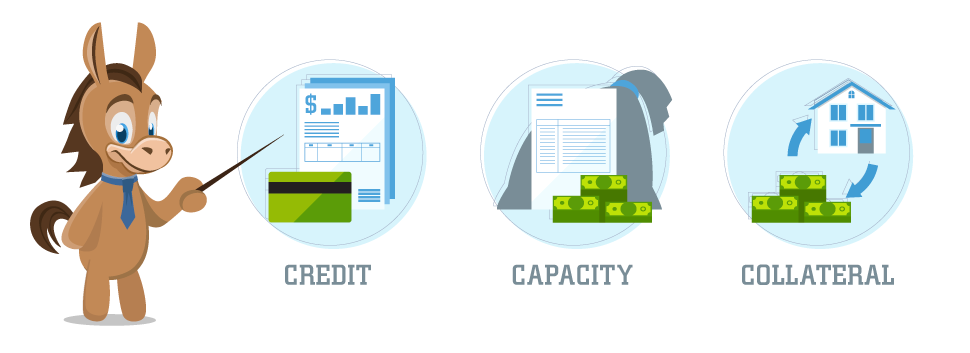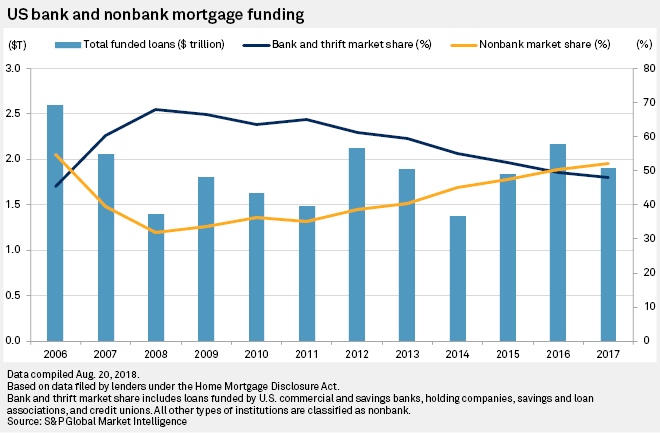If there is no equity in the house, then I would presume she would permit them to take the house if you or any other heirs do not desire to keep the house at a benefit of. They would set up to take the home either by Deed in Lieu or through foreclosure however Deed in Lieu is much better for the lending institution too.
We have actually seen debtors who obtained more in 2005 2007 than their houses are still worth today. That does not make the loan a bad loan those borrowers got more money than their home is currently worth and were allowed to live in their homes for 7 9 years without having to make a single payment and now that the loan is higher than the current worth of the house, they are not required to pay one cent over the existing worth towards the payoff of the loan.
A lot of them paid interest on loans that were well above the existing worth of the houses when the values dropped and some paid up until they might not pay any longer and after that they had no home to live in anymore and no cash to start over. Your mom was guaranteed a house to reside in for as long as she wanted/could and didn't have to pay any monthly payments for the whole time she lived there (simply her taxes and insurance) (how much is mortgage tax in nyc for mortgages over 500000:oo).
Your mom has actually made no payments on her loan for the last 9 years. Please forgive me; I am not insensitive to your mommy's situation (what is a non recourse state for mortgages). It just was not the reverse mortgage's fault that the entire economy fell apart which residential or commercial property values plummeted. I guess I just look at it a different method, thank goodness mom had a reverse home mortgage and not a forward mortgage that may have needed her to lose the house previously without the defenses that she has actually had.
She can vacate at her leisure (another advantage of the reverse home mortgage) and then when she is out and you have moved all of her belongings if none of the other family members desire the home, simply call the servicer and tell them she is out. They will relocate to take the property back and you will not even need the help of a lawyer. who has the lowest apr for mortgages.
Getting The How Common Are Principal Only Additional Payments Mortgages To Work
A "non-borrower" is a person who resides in the home but whose name is not on the loan files. Generally, the non-borrower need to move when the customer dies unless HUD standards qualify them to remain. A "co-borrower" is an individual virginia beach timeshare cancellation whose name is on the loan documents along with the house owner (candidate).
The sharp downturn in the realty market has impacted millions of Americans, and seniors are one of the groups most impacted. This is especially real of elders who have so-called "reverse mortgages." This kind of mortgage can potentially be an excellent way for individuals over the age of 62 to get cash out of their homes.
Reverse home loans are not brand-new. But older house owners are significantly turning to them to improve their scenarios later in life, especially during a down economy. These types of home loans, likewise called House Equity Conversion Mortgages (HECMs), permit individuals to withdraw a few of their home's equity and get it as a swelling amount, in month-to-month payments, as a credit line or a combination of these options.
Property owners eligible for reverse mortgages must westgate timeshare be at least 62 years old and have to own the home or have a minimal impressive home loan. The home should be their primary house and house owners must be without any defaults on federal debts. Homeowners should also go to an informative session about reverse home loans prior to submitting any HECM loan applications.
Since of a rash of loan provider foreclosures on generally elderly house owners holding reverse home mortgages, the AARP Foundation took legal action against the Department of Real Estate and Urban Development (HUD), challenging a rule that had the result of adding to foreclosures. The guideline needed an heir to pay the complete mortgage balance to remain in the house after the debtor's death, even if the quantity was more than the market value of the home.
The 7-Minute Rule for What Do I Do To Check In On Reverse Mortgages

Reverse mortgages can be expensive and confusing for elderly property owners, as they stand out from conventional mortgages. Also, a reverse home mortgage can in some cases deplete all of the equity in the homes if the house owners extend the reverse mortgage over too long of a period. This frequently occurs where the homeowner takes a reverse home mortgage on a presumption of life expectancy, but makes it through well past the anticipated mortality date.
This has actually been specifically true for recently widowed homeowners, and some beneficiaries of customers, since of loan provider compliance with an obscure HUD guideline that was instituted in 2008. Prior to the guideline change in 2008, HUD had actually followed a policy that customers and their beneficiaries would not owe more than a home's worth at the time of repayment.
The 2008 rule specified that surviving partners, in order to keep their homes, had to pay off the reverse home how to get out of a timeshare purchase loan balance soon after the deaths of their spouses. This held true regardless of whether the making it through partner's name was on the loan, and regardless of the home's then-current value.
That situation, and the associated HUD guideline, is what triggered AARP to sue HUD. AARP formally challenged HUD's action in altering this guideline, arguing that it was done arbitrarily by letter, rather than through the needed administrative treatment. The match further declared that HUD's rule modification broke protections previously enabled for widowed spouses to avoid foreclosure.
AARP hoped this would prevent more prohibited foreclosures from reverse home loans due at the time of a customer's death. In April 2011, HUD rescinded the 2008 guideline that required surviving spouses not called on the property's title to pay the full loan total up to keep their homes. The ramifications of this change are not yet completely clear.

A Biased View of What Are The Interest Rates On 30 Year Mortgages Today
However it is important to talk with an experienced property lawyer to understand where you stand. Reverse home mortgages ought to provide older house owners more financial liberty, but when they fail this purpose, they can regrettably leave elderly people both homeless and helpless. Senior Twin Cities property owners considering participating in a reverse mortgage agreement need to speak with skilled Minnesota realty lawyers like Burns & Hansen, P.A. how many mortgages in one fannie mae.
In addition, if you currently have a reverse mortgage on your home, you ought to discuss your situation with a legal representative experienced in these kinds of mortgages to make certain you and your partner are safeguarded if one you dies or if your house loses equity because of the slump of the property market.
A reverse home loan is a way for house owners ages 62 and older to take advantage of the equity in their home. With a reverse home loan, a homeowner who owns their home outright or a minimum of has substantial equity to draw from can withdraw a portion of their equity without having to repay it till they leave the home.